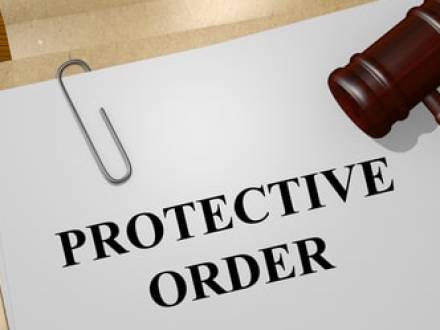
 In October 2023, Maryland enacted rules that significantly impacted divorce, making it simpler to obtain a divorce. Before this date, the state offered absolute divorce and limited divorce. Limited divorce was similar to legal separation in other states. While limited divorce did not end a marriage, spouses could negotiate issues like child custody, alimony, and property division.
In October 2023, Maryland enacted rules that significantly impacted divorce, making it simpler to obtain a divorce. Before this date, the state offered absolute divorce and limited divorce. Limited divorce was similar to legal separation in other states. While limited divorce did not end a marriage, spouses could negotiate issues like child custody, alimony, and property division.
An absolute divorce legally ended a marriage, and was either a fault-based divorce or a no-fault divorce. A fault-based divorce required that one spouse allege a "fault" or reason for the divorce, like desertion, adultery, or cruelty. These faults had to be proven by the alleging spouse, making the process much more adversarial. A no-fault divorce meant that both spouses agreed to the divorce, but required a 12-month separation period.
There are now three no-fault grounds for divorce, while the time a couple must live apart before divorcing has been shortened. The three no-fault divorce grounds in Maryland are now: six-month separation, mutual consent with a complete settlement agreement, and irreconcilable differences. If you are contemplating divorce, it can be beneficial to speak to a knowledgeable Gaithersburg, MD family law attorney.
Well, Friends. Didn’t think I would be blogging about this one. But, here we go. Astronomer CEO Andy Byron was seemingly exposed for having an affair when he and Kristin Cabot were caught on Coldplay's kiss cam.
Footage of him and his newly-hired co-worker hugging at a Coldplay concert, held at Gillette Stadium, has now gone viral. After their embrace appeared on a Jumbotron at the show, the pair were then seen scrambling to hide their faces. Big mistake. They should have just played it off. The band's frontman Chris Martin looked confused by the footage and said, "Oh, what?" before joking, "Either they’re having an affair or they’re just very shy."
Page Six reported after the clip emerged Byron's wife Megan Kerrigan Byron, who he shares two kids with, deleted her Facebook page after being inundated with comments from people about the alleged affair. Astronomer and Byron also responded to a statement, which was allegedly made by him about what happened.
 A DUI conviction can be a serious obstacle in many ways, many of which you may not have considered. If you currently hold or are applying for a security clearance, a DUI can potentially limit your future goals, whether that includes working for the federal government, a defense contractor, or any of the many other clearance-requiring employers. A single DUI conviction can raise red flags about your reliability, judgment, and trustworthiness.
A DUI conviction can be a serious obstacle in many ways, many of which you may not have considered. If you currently hold or are applying for a security clearance, a DUI can potentially limit your future goals, whether that includes working for the federal government, a defense contractor, or any of the many other clearance-requiring employers. A single DUI conviction can raise red flags about your reliability, judgment, and trustworthiness.
The stakes can be particularly high in Maryland, where many residents are employed in or around the D.C. metro area in jobs that are clearance sensitive. It is important to understand how a DUI could potentially impact your ability to obtain or maintain a security clearance. An experienced Baltimore, MD DUI attorney will explore every possible defense on your behalf, working aggressively to prevent you from dealing with future fallout from a DUI conviction.
 Almost all people have narcissistic traits. Healthy adults can benefit from a normal amount of narcissism that allows them to take pride in their accomplishments. Most teenagers display narcissistic traits, which are considered a normal part of development and growth. Narcissistic personality disorder is not the same as having a few narcissistic traits; about one in 200 people has narcissistic personality disorder, and about 75 percent of those are men.
Almost all people have narcissistic traits. Healthy adults can benefit from a normal amount of narcissism that allows them to take pride in their accomplishments. Most teenagers display narcissistic traits, which are considered a normal part of development and growth. Narcissistic personality disorder is not the same as having a few narcissistic traits; about one in 200 people has narcissistic personality disorder, and about 75 percent of those are men.
There is no hard evidence regarding the causes of NPD, although some theories include a combination of genetic predispositions and early childhood experiences like being raised by parents who lack empathy and/or provide excessive praise. An overly sensitive temperament is usually present at birth and can be an indicator of a narcissistic personality later on. While divorce seems to bring out the worst in many people, for those married to a narcissist, a divorce can feel like pure torture.
 The average federal student loan debt balance is almost $40,000; when private loan debt is included, that number can be much higher. The average public university student borrows almost $32,000 just to obtain a bachelor’s degree. As of May 2020, about 9 percent of all student loan borrowers who attended public institutions were behind on their student loan payments.
The average federal student loan debt balance is almost $40,000; when private loan debt is included, that number can be much higher. The average public university student borrows almost $32,000 just to obtain a bachelor’s degree. As of May 2020, about 9 percent of all student loan borrowers who attended public institutions were behind on their student loan payments.
Most divorcing couples are concerned about how the marital assets will be divided. Couples with student loans could be equally concerned about how marital debt will be divided and whether student loans for one spouse actually are marital debt.
The division of student loan debt during divorce can significantly shape the financial futures of both spouses. If you are anxious about whether you will be partially responsible for your spouse’s student loan debt, it is time to speak to an experienced Gaithersburg, MD divorce attorney.
Big changes to Child Custody in Maryland are coming!
Governor Wes Moore just implemented House Bill 1911, which will allow the Courts much more latitude in getting child custody cases right. Why does this matter? It matters because this Bill gives the Courts greater authority, which means overall fairness in determining custody. The factors the Court can now consider include: the child’s physical and emotional needs, stability, relationships with parents and siblings, parental communication and cooperation, the impact of conflict, and the child’s preference (if appropriate).
Courts must now explain their reasoning, either on the record or in writing, ensuring families understand how decisions are made.
So, for those of you dealing with parental alienation, parental gatekeeping, parents keeping children away from the other parent, and parents who play games, this new Bill should help because it allows the Courts to consider a vast scope of things when determining custody. I have attached the Bill, below.
 The most common reasons for divorce are generally expressed as lack of commitment, infidelity, too much conflict, financial issues, and lack of physical intimacy. The least-cited reason for divorce is a lack of shared interests. Divorce can be emotional, complex, and challenging – and that is just for starters. Understanding what to expect when your divorce ends up in court can help you deal with the process a bit better.
The most common reasons for divorce are generally expressed as lack of commitment, infidelity, too much conflict, financial issues, and lack of physical intimacy. The least-cited reason for divorce is a lack of shared interests. Divorce can be emotional, complex, and challenging – and that is just for starters. Understanding what to expect when your divorce ends up in court can help you deal with the process a bit better.
Litigation is the term used for legal action between two spouses who disagree about certain issues in the divorce. Litigation is necessary when the two spouses cannot come to a mutual agreement, and it can be intimidating for those who have never stepped inside a courtroom. It can be extremely helpful to have a knowledgeable Gaithersburg, MD divorce attorney who can guide you through the litigation process.
 Alcohol affects different people in different ways, and the effect may depend on whether the person has eaten, how often he or she drinks alcohol, and the time of day the alcohol is consumed. Although only 11 percent of the adult population is made up of males between the ages of 21 and 34, this group is responsible for almost a third of all drunk-driving arrests. Overall, about 81 percent of all those arrested for DUI are male, and 19 percent are female. Every state except Utah has a 0.08 percent BAC threshold for arrest, which is equal to approximately four beers.
Alcohol affects different people in different ways, and the effect may depend on whether the person has eaten, how often he or she drinks alcohol, and the time of day the alcohol is consumed. Although only 11 percent of the adult population is made up of males between the ages of 21 and 34, this group is responsible for almost a third of all drunk-driving arrests. Overall, about 81 percent of all those arrested for DUI are male, and 19 percent are female. Every state except Utah has a 0.08 percent BAC threshold for arrest, which is equal to approximately four beers.
That being said, you can be arrested for DUI with a BAC under this limit if the police officer believes you are showing signs of intoxication, including failing field sobriety tests. Women who are arrested for DUI are often at a distinct disadvantage since the tests used to determine impairment are based on the physical makeup of men. If you have been arrested for DUI, it is extremely important that you speak to an experienced Baltimore, MD DUI attorney as quickly as possible.
 Between January and August 2022, 311 protective orders were issued in the state of Maryland, and 344 were issued between January and August 2023. The category contributing to the largest percentage of this increase involved claims of stalking. While the terms peace order and protective order are often used interchangeably, they are not the same, even though they are both civil orders issued by a judge.
Between January and August 2022, 311 protective orders were issued in the state of Maryland, and 344 were issued between January and August 2023. The category contributing to the largest percentage of this increase involved claims of stalking. While the terms peace order and protective order are often used interchangeably, they are not the same, even though they are both civil orders issued by a judge.
Many people still think of these types of orders as "restraining orders," although that is no longer the terminology in Maryland. Those seeking a protective order or peace order may only qualify for one or the other, but not both. If you are unsure whether you need a protective or peace order, speaking to an experienced Gaithersburg, MD family law attorney can be beneficial.
Father’s Rights during Divorce and Custody cases in Maryland
When you think of the custody of children, many people assume (wrongfully) that a mother has a superior right to custody because she is the mother and/or she birthed the child. Nothing could be less true! While in the past, custody and visitation rights heavily favored towards mothers, legal perspectives have finally evolved, recognizing that fathers play an essential and irreplaceable role in the upbringing of their children. The Court looks at the child’s best interests, considering factors such as emotional ties, stability, and the capacity of each parent to provide for the child’s needs.
Our courts recognize that both parents have valuable contributions to make in a child’s life. This approach is laid out in various statutes and case law precedents that guide custody and visitation decisions.
What are fathers’ rights to custody and visitation?
Fathers in Maryland are entitled to equal consideration when it comes to custody and visitation. The courts do not favor mothers over fathers by default. In fact, the United States Constitution itself gives parents the Constitutional right to parent their own children. Fathers seeking custody must demonstrate their involvement in their child’s life, their ability to provide a stable environment, and their commitment to the child’s well-being. But, just because you’re a father does NOT mean you aren’t entitled to equal parenting time with your child.
